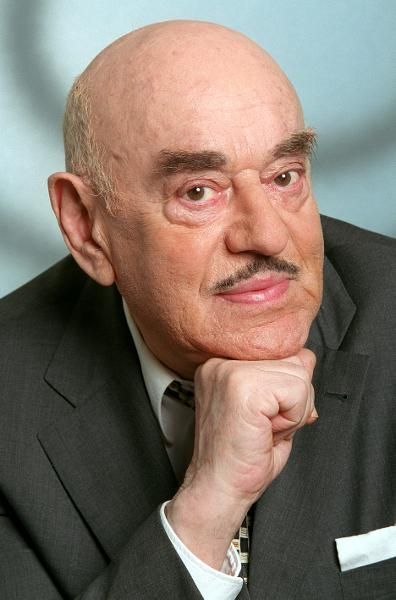Marek Pelc. A Polish-Jewish poet in Frankfurt/Main

Marek Pelc was born on 10 April 1953 to a Jewish family in Wrocław. He has a half-sister, Zofia, who is eight years his senior. His mother, Eugenia Pelc, née Lis (1924–2018) came from Brok on the Bug river, a town 100 km to the east of Warsaw. When she was 14, she joined the Jewish socialist “Bund” in Poland, and spent the war years in the town of Pensa in the Ural mountains. His father, Mateusz Pelc (1923–1987), was born in Zamość, but grew up in Novosibirsk in the Soviet Union. It was thanks to their relocation to Russia that his parents survived the Holocaust. In an interview for the “Jüdische Allgemeine” newspaper, Pelc explained that he came from a politicised family.[1] In 1945, his mother returned to Poland, where she settled in Wrocław in Lower Silesia. At that time, those Jews who had survived tended to choose Lower Silesia (Dolny Śląsk) as their home, since here, they felt relatively safe in post-war Poland. Marek’s father returned from Russia somewhat later, in around 1950. Eugenia Pelc then worked for many years as a consultant on the executive board of the “Społem” Wrocław cooperative. Her husband was a stage manager in the Polish Theatre (Teatr Polski) and was also responsible for organising the logistics of the theatre company’s popular tours.
Marek Pelc attended the Jewish school in Wrocław, which was housed in the building of what was then Grammar School no. 7 on Jizchok Leib Perez Square (Plac Icchoka Lejba Pereca). In addition to the standard range of subjects, pupils at the school also learned Yiddish and Jewish history. During that time, he also took part in holiday camps, including in Elbląg and Żabno near Tarnów, which were organised by the Jewish Friendship Circle (Towarzystwo Społeczno-Kulturalne Żydów, TSKŻ), which in turn was supported by an aid organisation from the US, the American Jewish Joint Distribution Committee, or simply “Joint” for short. Most of Marek’s fellow pupils were from Jewish families in Wrocław.
Emigration in 1968
In 1969, in the wake of the anti-Semitic campaign in Poland, which only intensified after the Six-Day War in Israel in 1967 and which finally boiled over throughout the country, Marek’s mother lost her job. Although the Pelc family did not own a television, Marek remembers the famous speech tinged with anti-Semitism by Władysław Gomułka, who was then Secretary General of the Polish United Workers’ Party (Polska Zjednoczona Partia Robotnicza, PZPR). He heard the speech by chance as he was passing a shop in Wrocław that sold televisions. That same year, his parents decided to leave Poland for good. It was his mother above all who made the decision, while his father was more hesitant about emigrating. In 1969, Marek had just completed his ninth year at Grammar School no. 4 in Wrocław. His half-sister Zofia emigrated to Denmark with her husband.
According to the law at the time, those wishing to emigrate were required to give up their Polish citizenship; only then were they presented with travel documents, which expressly excluded any possibility of ever returning. The Pelc family therefore cleared their apartment, tied up any organisational business that needed to be completed, and in November 1969, boarded a train to Vienna. There, they spent two days in a transit camp in Schloss Schönau palace, where the Israeli immigration authority also had an office. On 12 November 1969, the family landed at Tel Aviv airport. They had relatives in the city.
In Israel
Immediately on arrival in Israel, the stateless new arrivals were granted Israeli citizenship. The Pelc family were given an apartment in a duplex building in Upper Nazareth (today: Nof HaGalil), which was unfortunately some way away from their relatives in Tel Aviv. Marek attended a language school in the Bar'am kibbutz on the border with Lebanon. His mother was assigned a different kibbutz. At first, his father remained in the new apartment, but later returned to Europe, where he initially stayed in Denmark. From there, he moved on to Germany, to Frankfurt/Main.
After a year in the kibbutz, Marek Pelc continued his education with other new arrivals from Poland in an evening college in Holon. During this time, he lived with his mother in Petah Tikva near Tel Aviv. In 1971, he passed his school-leaving exams and was conscripted into the army. He then served in the Israeli army for three years. Then, in 1975, he enrolled at the Hebrew University in Jerusalem, where he studied philosophy and history. Since he had little monetary support from his father, he got by financially by doing various odd jobs, usually cleaning peoples’ apartments. At the same time, from 1975 to 1977, he worked in the Israeli National Library in Jerusalem. In 1979, Marek completed the first part of his studies, obtaining a Bachelor of Arts. Since at that time it was no easy task finding work with his two degree subjects, he changed course and began practical training as a masseur. It was in this role that he earned his living, including in a Turkish bath in Jerusalem. In 1980 and 1981, he travelled to Europe for a year, where he again made ends meet by taking on odd jobs. He first stayed in Denmark, then in Germany, and finally in France, where he was hired to help out with the grape harvest. On his return to Israel, he moved into his mother’s apartment, who had now moved to Denmark to be with her daughter there. He continued his studies and obtained his Master of Arts degree.
[1] Wollenhaupt, Annette: Wir sind uns selbst Heimat, in: “Jüdische Allgemeine”, no. 33, 18/8/2009.










